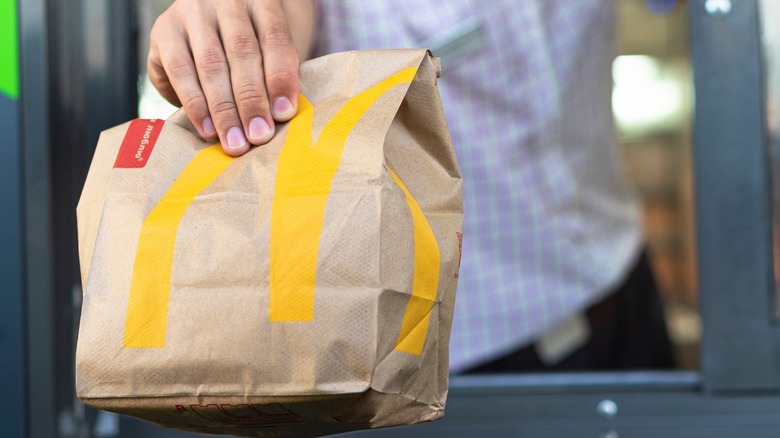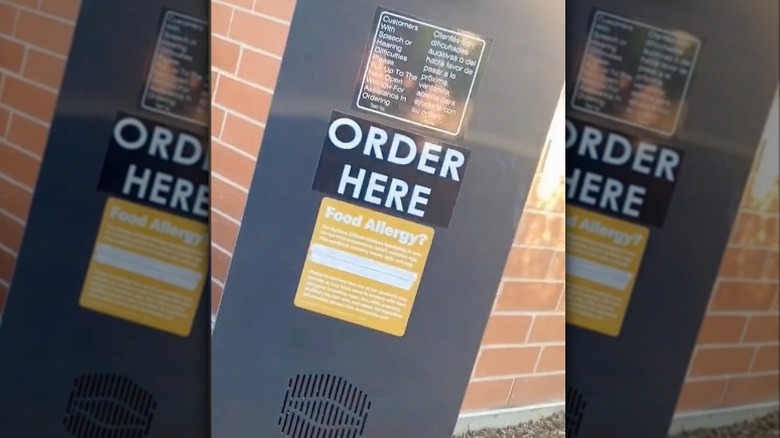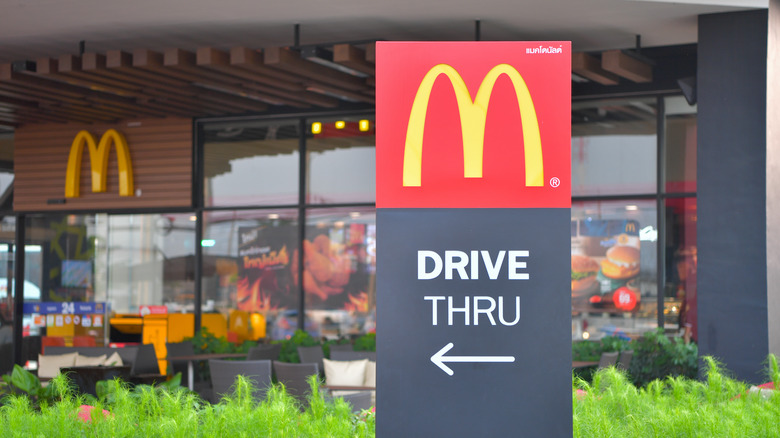How Is McDonald's AI System Really Faring At The Drive-Thru Window?
McDonald's had big goals when it first rolled out its voice-ordering technology on a trial basis at 10 Chicago outlets, per Restaurant Dive. The chain had been hoping that AI would help it find a way out of its labor shortage, an issue that has plagued many fast food companies as far back as 2018, per Business Insider. The company said it even offered the hope that – at least where U.S. corporate locations were concerned – AI would allow it to raise wages for entry-level workers from $11 to $17, per Restaurant Dive.
Unfortunately, there appears to be a small hiccup at least where ordering is concerned, because while the testing has expanded to 24 outlets from the original 10, McDonald's was hoping to see a 95% accuracy rate in orders. Instead, the systems which are being tested are returning an accuracy rate that is in the low 80%. As QSR reported, operators feel the accuracy is "not quite there yet." And accuracy may not be the only problem McDonald's AI systems are facing.
The AI drive-thru system has met some resistance
As it turns out, at least some customers may not be too taken with the idea of speaking to a voice that one writer at ZDNet compares to "exactly the same robot voice you've heard in every disturbing sci-fi movie. It's as if Siri's daughter has just got her first job." In August of 2020, one TikTok user called the system "the most dystopian thing I have ever seen in the 27 years of my life. 2020 is crazy." as she filmed herself using the system to order two medium Oreo McFlurries.
Mcdonald's was also sued by a customer in Illinois named customer Shannon Carpenter, who believes the fast food giant should have to get consent before obtaining his voiceprint. The lawsuit, per Restaurant Business, claimed that "McDonald's AI voice assistant goes beyond real-time voiceprint analysis and recognition and also incorporates 'machine-learning routines' that utilize voice recognition in combination with license plate scanning technology to identify unique customers regardless of which location they visit and present them with certain menu items based on their past visits." Carpenter's suit alleges that this runs afoul of the state's Biometric Information Privacy Act, according to which companies have an obligation to let customers know if biometric information is being taken.
McDonalds isn't expected to hit pause on AI rollout
Then there is the matter of soothing disgruntled franchisees, who McDonald's insists should be responsible for paying monthly charges to help cover the cost of automating the drive-thrus. The fast food giant calls them "technology fees," and Restaurant Dive calls them the cause of a dispute between the franchisees and McDonald's corporate, which has yet to be resolved
Still, the industry analyst who tested the systems, Peter Saleh, said the restaurant isn't likely to stop adopting the new technology now. Saleh explained to QSR that Presto, one of McDonald's AI vendors, "claims its voice ordering system is about 95% accurate, can generate a 20-second improvement in throughput, and reduce labor by nine hours per day."
If successful, the brave new world of AI could reap big money rewards for McDonald's as a whole. As CEO Chris Kempczinski put it, "[Automation] gives you a speed of service opportunity positioning that has labor benefits. So it can change ... the entire unit economic profile for the better of what a restaurant looks like," per Restaurant Dive.


